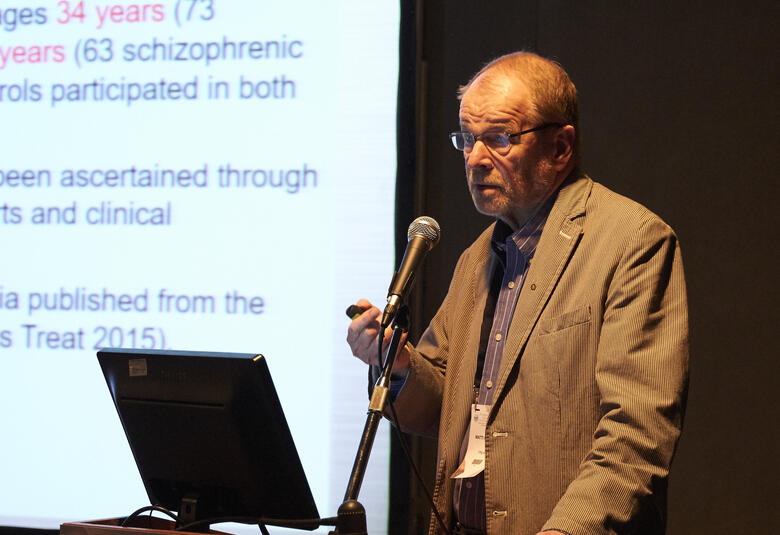Progress in psychiatric research is moving at a new and unprecedented pace, which makes communicating and sharing knowledge increasingly important. In the run-up to the 2016 international CINP congress in Seoul, Korea, we spoke with Professor Gregers Wegener from Aarhus, Denmark about recent evolutions in the field and the role of the CINP in supporting medical education.
Professor Gregers Wegener is Professor of Experimental Psychiatry at the Aarhus University, Aarhus, Denmark and has been active in neuropsychopharmacological research for over 25 years. Involved with the Scientific and Education Committees of the CINP, he is currently acting as chair of the Educational Committee. Professor Wegener has also served as a CINP counsellor, and is current president of Scandinavian College of Neuropsychopharmacology (SCNP).
How do you see the evolution of neuropsychopharmacology and psychiatry?
Psychiatry is undergoing a transformation. One of the most interesting things is that we are moving closer to understanding the biology of psychiatric conditions and disorders – how biological processes influence the mind. That means everything from improving our understanding of brain function to appreciating how imbalances in the body more generally, affect the mind. Diseases like diabetes, the impact of diet – these are now being seen as things that affect the mind. For many years psychiatry was limited to thinking about the brain, but we are realising that psychiatric conditions, like so many other diseases, have a more complex make up.
We still have some work to do regarding psychiatric diagnoses. Diagnoses are still made on a purely descriptive basis and still lack biological insights and understandings. The diagnostic boxes we have put patients into have been based on what patients seem to look like. But from a biological perspective, when we describe a single psychiatric diagnosis, we could actually be looking at two or more completely different conditions. An analogy would be a diagnosis ‘fever’ – that while a patient with a biological infection has the fever – so does a patient with a viral infection – but the diagnosis, the conditions, and how we might treat them are quite different.
But I think we are moving forward with our understanding of the many different psychiatric diagnoses based on access to genetic tools, imaging and biomarker research.
What do you feel have been some of the major breakthroughs in psychiatry research in recent years?
After some pessimism around our treatment of psychiatric disorders, I think we are moving towards some breakthroughs, particularly regarding the treatment of depression. Research is suggesting that we will be able to help patients much more quickly. One of the big things we are now looking at is rapid acting medications – to have an effect not within weeks, but within hours or days.
Another concept that is currently exciting interest is looking at the whole body and not just the brain when considering psychiatric disorders. Body-mind concepts. For example the idea that altering the gut microbiome can lead to changes in the mind – impacting on and improving cognition – I think this is very exciting and is stimulating different ways of thinking about and studying psychiatric conditions. Likewise – the concept that psychiatric conditions may involve inflammatory components.
What is happening in medical education in psychiatry?
Part of the CINP mission is to be involved in medical education. The CINP has a long and proud tradition for this, and actively tries to spread knowledge about neuropsychopharmacology and the use of drugs, particularly in developing countries and regions where educational resources may be lacking. I see that there is a great need to continue and develop that kind of international medical education.
Electronic educational platforms are another area of opportunity. Web-based courses, webinars, news and access to conferences – are all great ways to spread and share information. Ideally education should be free for all.
The CINP Education Committee considers ideas for medical education. For my own part, I think possible priorities of interest include developing a CINP neuropsychopharmacology academy – to provide high educational standards in the field.
What are you most looking forward to at CINP 2016?
There are some really interesting plenary lectures at CINP 2016 (http://www.cinp.org/2016-world-congress-seoul-korea-2/) and the meeting is an excellent opportunity for networking.


